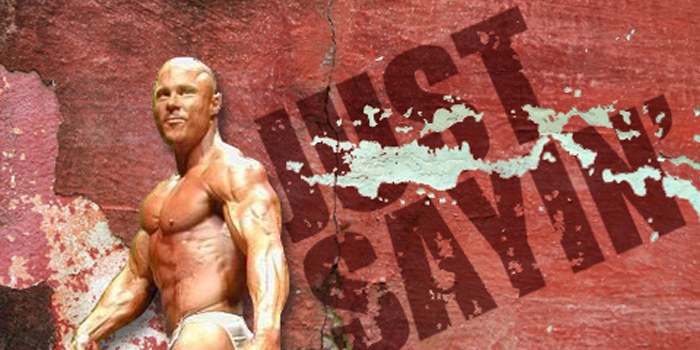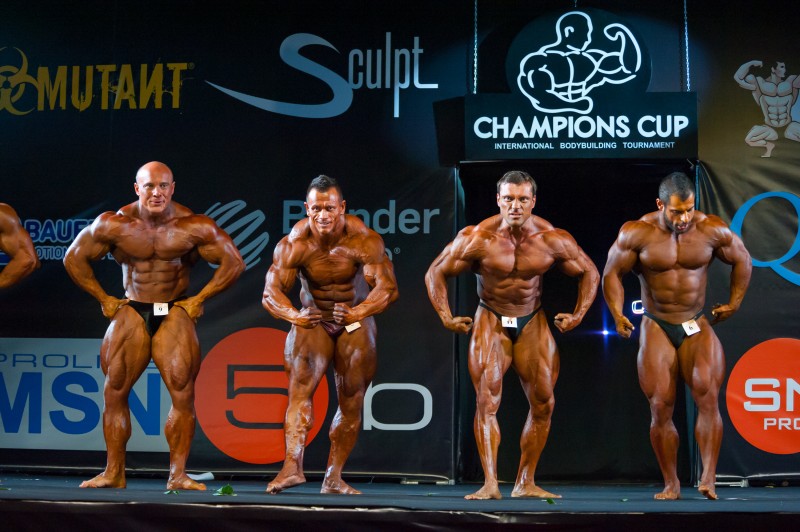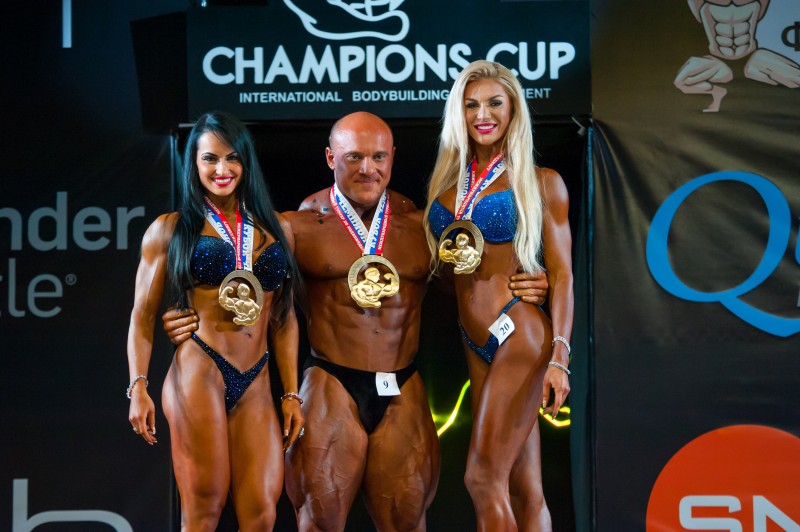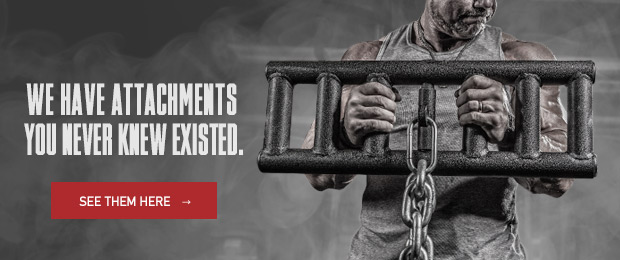
I started competing almost 30 years ago, and I have made a very good living doing contest prep all the way back to the message-board days — and not just the message-board days, but the message-board days before there were even any graphics or advertisements. I am not kidding when I say that I legitimately had an AOL dial-up connection. Yes, I’ve been around THAT long.
In that time, I have seen a lot of mistakes, and I’ve made my fair share of them as well. I have always felt that a big part of my writing for elitefts.com should be to save as many people as I can from making the mistakes I have made or witnessed others make in my 3.5 decades of bodybuilding.
RECENT: How to Get Huge in Less Than 1,000 Words
Though there are many more mistakes that competitors make after a contest, I have narrowed my list to the 10 that I feel are the most important. If you have others that you want to add to the list, feel free to post them in the comments section after this article. I always appreciate an interactive dialogue with the people who read my articles versus the typical comments of how stupid I am, how I should have been fired years ago because my writing sucks, and how ugly I am. The latter may be true, but my mom says I’m still adorable.
The 10 mistakes listed below are not in any specific order.
1. Not Taking Enough Rest Time After a Contest
If you have a show on a Saturday, and you are back in the gym banging on Monday, you are asking for trouble. Obviously, if you have another contest in a week or two, you need to be back in the gym — no question. If you do not have another show, your immune system is in an incredibly vulnerable position in the last few weeks leading up to a contest. You are beaten down physically and mentally; you usually have nagging minor injuries; metabolically, you likely are over-dieted; and recovery is usually compromised substantially. In short, you need time to let your body recover, heal and catch up.
I typically recommend a full week out of the gym, but most people will not adhere to that plan, no matter how emphatic I am with them about it. If you simply cannot stay out of the gym for a full week, at least stay out for three to five days, and then when you do go back, enjoy some pump workouts where you go into the gym, get a pump, show off your condition, and laugh a little bit with your training partner or other members of the gym. Don’t go for big numbers on compound movements and certainly don’t attempt to set any PRs.

Aleksei Deviatov © 123rf.com
If you do not allow for enough rest time after the contest, it is quite common to end up sick. I have seen horrible cases of bronchitis, pneumonia, mono, strep, and I am the poster boy for shingles because I have managed to get it twice in the last 15 years. I had it so bad the first time (2003) that I still have the nerve damage that causes pain every 20 to 30 seconds of my life from 2003 until now. I will take it to my grave, unfortunately, and I don’t wish that upon even my worst enemy.
You will not lose all of your muscle in a week. Within a few days of working out again, you will blow up and look insane. If you are worried about your condition and don’t want to get fat, that leads me to the next topic.
2. Adding Too Many Calories Too Fast
Everyone together: “I want to grow like crazy and add a ton of muscle for the first few weeks after a contest.” Uh-huh. We all do, but that isn’t how it works.
What does happen is you fill out, get skin-splitting pumps, and look crazy big because of the added carbs and calories. The bulk of what you see in the mirror shortly after a show is not technically muscle growth.
WATCH: Career- and Body-Killing Food Allergies From Eating the Same Foods Too Often
Added calories are a must after a contest. They help you fill out, recover better, and can help feed your metabolism if the calories are added incrementally over time. However, if you add too many calories, you will look great for a couple of weeks, and then all of a sudden, you wake up one morning and realize you are fat. For some reason, competitors really struggle to see this coming down the pike until it’s too late.
My basic rule of thumb for clients and me is to add 30 percent of your dieting calories the first week after a contest and assess how you are responding. Some people will need to keep adding calories weekly (possibly in smaller percentages) while others may need to back off slightly, but the most important thing during this time is to honestly assess your condition and a lot of people struggle to do this.
If you err on the side of fewer calories, you can always add more. If you err on the side of adding too many calories and pulling back if you don’t like your condition, you are far more likely to turn into a fatty — and fast.
3. Training Too Heavy Too Fast
It is admittedly tempting to try to take advantage of the added fullness from the added calories and jump back into training hard and heavy right away. After all, we do want to build muscle, and after a contest, those weights can start to feel much lighter than they were during your contest-prep phase.

Anton Gvozdikov © 123rf.com
At the same time, remind yourself that jumping up too quickly in weight is going to put your body in a vulnerable position and open you up to an increased potential for injury. I am all for increasing strength and putting more weight on the bar, but this isn’t a race to see how much weight you can get on the bar in the shortest amount of time possible. Your strength will climb, so taking it slow is the best option for the long haul.
4. Thinking You Are Getting Huge When You Are Getting Fat
For this one, you need to be honest with yourself when assessing your condition or you need to have friends or a trainer you can trust to be honest with you. When you get honest feedback that you trust, LISTEN TO IT. Some body fat will, of course, need to be added to make solid gains in your off-season. However, there comes a point where added body fat provides no benefit to making solid gains in your off-season and only sets up another obstacle for you down the road when it is time to get lean again. Remember, the harder you have to diet, the less likely you will be able to hang on to the muscle that you worked so hard to build in your off-season.
5. Fighting To Stay Too Lean
This is equally as detrimental as gaining too much body fat. It is incredibly difficult to build muscle at an efficient rate if you are too lean and your calories are too restricted. I always appreciate when a client wants to stay in the best shape they can for their off-season and still build muscle tissue. However, as with anything else, it is a balancing act. Find that happy medium where you are building muscle tissue and making solid gains, but keeping body fat well under control.
RELATED: Phases of Performance Nutrition
6. Thinking You Are a Better Competitor Than You Are
Listen, I support confidence. Everyone should feel confident in their abilities, their efforts and the investments they make to be the best they can be. At the same time, if you show up at a bigger contest and you take third because there were only four or five people in your class, keep it in perspective. It doesn’t mean you suck, but it does mean that you certainly didn’t have to stand with a deep field and see where you stack up. I have seen NUMEROUS occasions where someone who takes third was not anywhere near as good as someone who took 12th the year before in a deeper division.
7. Thinking You Are a Horrible Competitor Due To a Placing
Our placings are based on how we look when compared to the rest of the field on that particular day, only. Getting smoked sucks; I’ve felt it, and anyone who has competed for any length of time has likely felt it as well.
I will give you an example of why getting down on yourself is not the best option.
Last year, I had a client who took third at a state show and was pretty disappointed. He almost didn’t go to the junior-level show three weeks later. After making the decision to do the junior show, he ended up returning the smoke to the guy who had beaten him at the state show and missed his pro card by one place on his first attempt at a pro card.
My point is that you are judged based on the people standing next to you on that particular day. You can be better (or worse) from show to show, so if you take the placings in stride and understand that competing is a journey versus a destination (some of you need to re-read that again, maybe over and over until it sinks in), you will enjoy the process of competing and improving between each show that you do.
8. Changing Your Prep Guy When Everything Went According To Plan
This happens a lot and it makes zero sense. If you pay attention to those who continue to work with the same prep guy for years — whether they’re amateurs or pros — you will see that these competitors tend to constantly improve and get better from show to show. Why? It’s quite simple, really: The more you compete and the more times you have to peak, the more you and your prep guy learn what works best for you.

Anton Gvozdikov © 123rf.com
When a competitor changes prep guys like they change girlfriends, there is a new plan or peaking protocol every single time they change prep guys. Any prep guy worth his weight will tell you that the first time working with a competitor is the biggest gamble in that there is no past experience to compare it to.
Here is a great example to make my point: I think we can all agree that Hany Rambod and Phil Heath had gotten to the point where they knew EXACTLY how they were going to respond to almost any adjustment they were going to make. I can think of amateurs who have consistently peaked over the years with the same prep coaches as well.
LISTEN: Table Talk Podcast Clip — Justin Harris Talks Hormones and Janae Kroc's Bodybuilding Prep
Why do competitors change prep guys so often, then? Keep in mind that almost all competitors these days are also prep guys. The more prep guys they work with, the more they feel they are learning so that they can use that knowledge with their own clients. This is the single biggest reason that competitors change prep guys so often, which brings me to my next point.
9. Thinking You Are Now a Prep Guy
I won’t go off on a rant because I have said this forever, over and over, to the point of sounding like a broken record. I will just say that the best prep guys are good because of the amount of experience they have with so many clients for years on end. New prep guys don’t have that experience to be able to deal with situations that come up that are not normal or ordinary.
Sure, there are certainly some newbie coaches with very little qualifications or experience that can get someone peaked and they can place well. However, I would hate to be their client when they run into a situation that they have no clue about and then pretend they do.
In short, it would be better for the industry if competitors would leave the prep game to those who are experienced and good at what they do instead of flooding the industry with yet another mediocre coach that charges 500 bucks for a prep.
10. Not Making It Up to the Family That You Put Aside During Your Prep
What we do as competitors is incredibly selfish; it’s all about us. It is also very time-consuming, and the closer to the show a competitor gets, the less likely they want to go out for dinner, a movie, spend time running around with their spouses and kids, etc. Obviously, there are exceptions, but even if you think you are that exception, your family would likely say otherwise. What we see and what they see aren’t usually the same thing.
After a contest, make your family feel that they are appreciated for supporting you during your prep and do the things that you weren’t able to do for the preceding four to six months. This is how you stay happily married and how your kids will continue to support you for any future shows you want to do. It would be a shitty feeling if you announce to your family in a year that you are going to compete again and they give you a look that says, “Oh great, here goes another shitty six months.” Just Sayin’.










